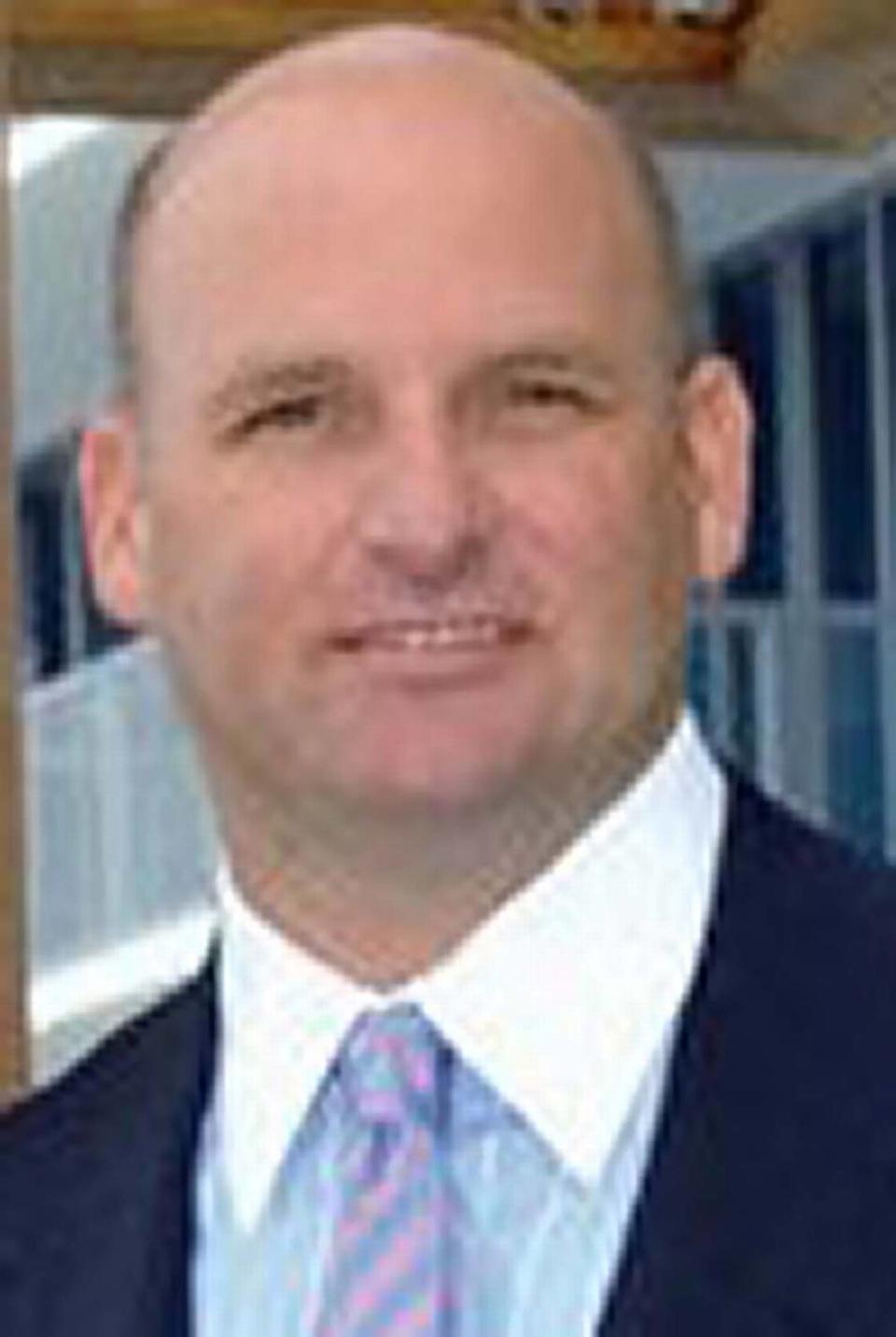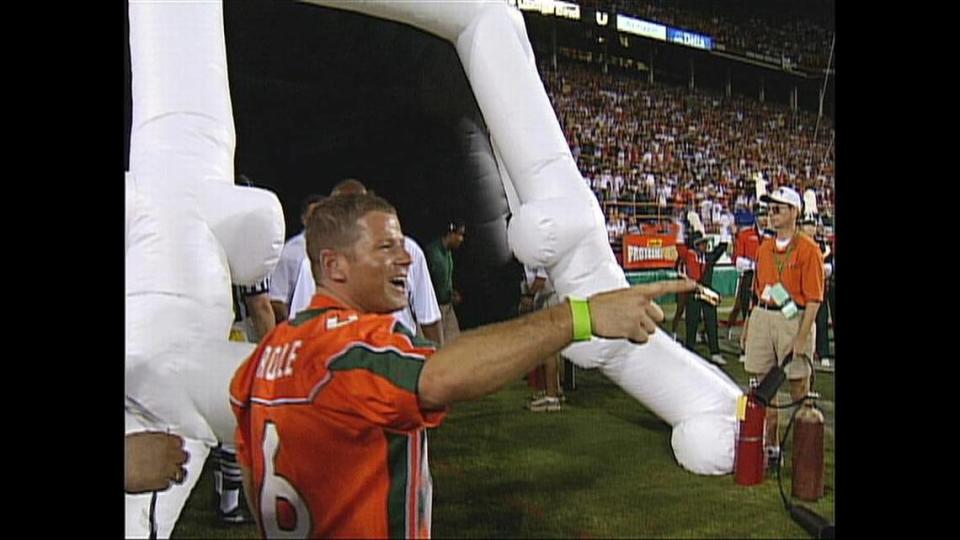Miami-area developer Eric Sheppard convicted of pandemic loan fraud, faces prison
A notable South Florida developer was convicted in federal court Friday of falsifying paperwork and forging signatures on applications to obtain about $900,000 in government-guaranteed loans under an emergency COVID-19 relief plan for struggling businesses during the pandemic.

The jury’s verdict against Eric Sheppard, perhaps best known for renovating the historic Carillon hotel on Miami Beach, was decidedly split. The 12-person Miami federal jury found Sheppard guilty on four out of nine wire fraud charges but acquitted him of the other five. The panel also found him guilty of two aggravated identity theft charges but acquitted him of the other three.
Sheppard, 53, who grew up on Miami Beach and has raised his family in Bal Harbour, faces several years in prison at his sentencing in April.
His defense attorney, Jayne Weintraub, called the outcome “devastating.”
“The jury compromised, giving up their true beliefs, unfairly hurting an innocent man and his family,” Weintraub told the Miami Herald. “The verdict was legally inconsistent.”
The jury began deliberations Thursday afternoon following a three-week trial and a long holiday break. Within an hour, the jurors told U.S. District Judge Beth Bloom that they could not reach unanimous verdicts on 12 of the 14 charges. But the judge gave them a so-called Allen charge, instructions aimed at urging a deadlocked panel to reach a conclusion. The jurors returned Friday afternoon with their verdicts.
During trial and at closing arguments Thursday, the jury was presented with two portraits of the defendant: Prosecutors depicted Sheppard as a conniving developer who cheated the system to line his pockets, but his defense team portrayed him as a legitimate businessman who needed the government’s help to pay his employees during a public health crisis.
“He lied about things big and small,” prosecutor Aimee Jimenez told jurors Thursday. “All of the money went to the defendant for his benefit, for his use.”
Not true, countered Sheppard’s defense lawyer.
“He wasn’t looking to cheat people or steal money,” Weintraub said.
She pointed out to jurors that unlike most business owners who received government benefits during the pandemic, Sheppard has been paying back the relief loans that he used for construction workers and others while developing a huge retail warehouse store for an anchor tenant in his company’s shopping center in Orlando.
READ MORE: 17 Broward sheriff’s employees face charges of fleecing federal pandemic loan program
“These are real people getting real money when they could not support themselves,” Weintraub said. “Eric did not use this money for any inappropriate purpose.”
Sheppard was the first South Florida real estate developer ever to be charged with COVID-19 loan relief fraud under the Small Business Administration’s Paycheck Protection Program approved by Congress, which authorized $800 billion in loans through private banks to companies across the country. The loans under this and other pandemic programs were forgiven by the SBA as long as they were used for legitimate purposes, such as employee wages, leases and utility costs.
Sheppard faced nine counts of wire fraud based on allegations that he submitted falsified loan applications. He was also charged with five counts of aggravated identity theft based on accusations that he forged the signatures of others on a bank letter, a lease agreement and three corporate tax documents while applying for the loans between April 2020 and March 2021. Each of the wire fraud counts carries up to 20 years in prison and each of the identity theft counts carries a mandatory two-year sentence.
Sheppard’s loan applications were in the $150,000 range and reviewed by three lenders under the Small Business Administration program and disbursed during the pandemic, according to an indictment. Four of Sheppard’s pandemic relief loans were included in the indictment.
Jimenez and fellow prosecutor Ana Martinez said his loan applications for three different companies, HM Management and Development, HM-UP Development Alafaya Trails and HM Four, were “false and fraudulent” and that he used the nearly $900,000 in proceeds for his mortgage, American Express card and jewelry bills, among other personal expenses — though Sheppard’s lawyers argued that the commingling of his funds was proper. The prosecutors also said that only one of his companies had any employees — HM Management and Development — and that business employed only a few workers besides him.
READ MORE: Former Miami TD Bank manager gets 10-year sentence for swindling pandemic loan program
Prosecutors said that the main problem with Sheppard’s pandemic loan applications was that they contained purported benefits for full-time W2 employees but his business hired only independent contractors. That was not allowed under the SBA’s Paycheck Protection Program.
“He claims he doesn’t know the difference between an employee and an independent contractor,” Jimenez, the prosecutor, told jurors, noting that Sheppard has a degree in economics and finance from Florida State University.
“He wasn’t confused as he pretended to be on the witness stand for days,” she said, referring to Sheppard’s testimony towards the end of the trial. “He knows from the very beginning that this [SBA program] had to do with wage employees only.”
In response, Weintraub downplayed the difference between the two definitions of workers, saying Sheppard was a smart, self-made millionaire but “unsavvy with a computer.” She said he relied on others to advise him on the complex SBA guidelines for applying for pandemic loans. She also said the SBA itself didn’t make a distinction between W2 employees and independent contractors on its web page for loan applications, which were processed by banks and other financial institutions.
“Nobody is telling Eric you have to have W2 employees,” Weintraub told jurors. “It’s not on the portal. They [prosecutors] want you to convict him if it wasn’t there.”
She also challenged the prosecutors’ claim that Sheppard forged the signatures of others without their knowledge on the bank letter, lease agreement and three IRS tax forms as part of his alleged scheme to defraud the SBA’s Paycheck Protection Program and a related pandemic relief program for businesses.
“This is not aggravated identity theft,” she said. “He has no intent to defraud anybody.”
Weintraub, who worked on Sheppard’s defense with attorneys Jonathan Etra and Christopher Cavallo, stressed that the developer sought economic assistance from the SBA program at a critical time during the onslaught of the COVID-19 pandemic. She said Sheppard used the federal loans to pay workers and buy materials to rebuild a vast space left vacant by the bankruptcy of anchor tenant Toys ‘R Us to make way for another major retailer, Burlington Coat Factory, at a shopping center that he developed off Alafaya Trail in Orlando.
During his testimony, Sheppard said that a Miami-Dade businessman he hired to oversee the construction project signed Sheppard’s name on the some of the SBA loan applications. The businessman, Jeff Vasilas, who owned a Miami-Dade strip club called the King of Diamonds, is deceased.
In her closing argument, Weintraub said that if anyone was defrauding the SBA’s loan program, it was Vasilas — not Sheppard.
“We’re not blaming the dead guy,” she told jurors. “We’re blaming the guy who did it.”

As the nation’s No. 1 fraud capital, South Florida has led the financial crime wave that followed Congress’ passage of the CARES Act during the pandemic. Starting in 2020, the legislation injected about $800 billion through the SBA’s Paycheck Protection Program into the national economy, with banks reviewing the loans for a fee and the U.S. government forgiving the loans as long as the money was used to pay employees or other overhead expenses.
About 200 South Floridians have been charged with defrauding the program, submitting hundreds of millions of dollars in applications deemed bogus by federal prosecutors. Almost all have been convicted, while a small number still await trial. Of those convicted: a businessman using PPP money to buy a $318,000 Lamborghini; a nurse alleged to have lied about his business to get $474,000 that was used in part to pay a Mercedes-Benz lease and child support; and a North Miami suburban couple who claimed to be farmers to qualify for $1 million in relief benefits.
But Sheppard’s case was the only one prosecuted by the U.S. Attorney’s Office in South Florida in which the defendant was paying back his Paycheck Protection Program loans rather than asking the SBA to forgive them, which is commonplace.
Sheppard, with an FSU business degree, had by far the highest profile of those prosecuted on charges of fleecing the SBA’s pandemic loan program. On his LinkedIn page, he describes attaining a robust real estate development career. He highlights developing and building commercial and residential projects in 13 different states, including hotels, condominiums and shopping centers “with values in excess of 1 billion dollars.”
Sheppard, who records show lives in a $4.2 million home in Bal Harbour, first drew attention as a real estate developer 15 years ago when he renovated the historic Carillon in Miami Beach and turned it into an upscale resort complex with a pair of condo towers and the Canyon Ranch spa. The Collins Avenue project put Sheppard and his company, WSG Development, atop Miami Beach’s real estate world.
Before his 40th birthday in 2008, Sheppard also built a reputation as a deep-pocketed and dependable philanthropist.
While Sheppard had never faced criminal charges before, he had a previous legal dispute with a private lender in the Carillon project and also was involved as an investor with notorious Ponzi schemer and disgraced University of Miami football booster Nevin Shapiro. Sheppard wound up being sued as part of the scandal.

The great recession hit the real estate and financial markets hard in 2008, including his high-profile Carillon project. Sheppard was sued by his company’s lender, Lehman Brothers, which accused him of failing to pay millions of dollars in loans for the redevelopment of the Collins Avenue hotel and resort. The dispute was settled confidentially. Sheppard no longer has a financial interest in the project.
But around the same time, Sheppard’s close relationship with Shapiro, a Miami Beach boyhood friend, brought controversy, financial losses and legal trouble, according to court records. Sheppard, according to court records, was sued by a trustee for Shapiro’s bankrupt company as the trustee tried to recover money for his investment victims.
One of South Florida’s most infamous con artists, Shapiro sold investors on the idea of buying groceries cheap in one part of the country and selling them in another part for a profit — a wholesale distribution business that collapsed at the same time that Sheppard had completed his signature resort project on Collins Avenue.
Sheppard lost roughly $2 million, including $1.3 million in investments with Shapiro’s business and an additional $700,000 in a settlement with the bankruptcy trustee tasked with recouping funds for victims of Shapiro’s $930 million Ponzi scheme. The settlement resolved a federal lawsuit that alleged Sheppard was not duped by Shapiro’s elaborate scam, but rather was an active participant in it.

